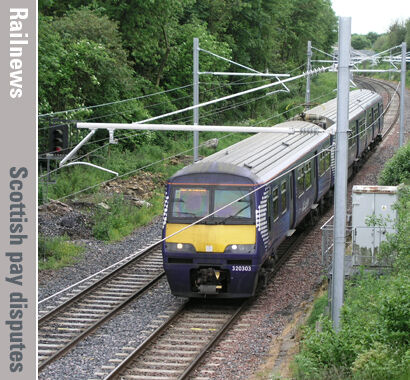The RMT is holding strike ballots of its members on ScotRail and Caledonian Sleeper, after the union had rejected a pay offer as ‘derisory’.
ASLEF has already warned ScotRail that it is seeking the authority of its Executive Committee for a similar ballot, again after pay talks broke down.
ScotRail is struggling with a shortage of drivers and has axed an estimated 600 trains from its timetables each day because it says not enough drivers are volunteering for overtime and rest day working.
The RMT has labelled ScotRail’s latest pay offer of 9.3 per cent over three years as ‘insulting’, because the union said it is ‘well below’ inflation. The union has also pointed to this year’s 6.7 per cent increase awarded to members of the Scottish Parliament.
ScotRail’s offer is understood to have been 2 per cent from April this year and the same amount in April 2025 and 2026, plus a further one per cent in January for the next three years.
RMT general secretary Mick Lynch said: ’It is ludicrous that the MSPs ultimately responsible for running these services were taking bumper pay rises whilst subjecting workers to significant hardship during a cost-of-living crisis.’
Both operators are nationalised, and are run by companies owned by the Scottish Government.
ScotRail customer operations director Phil Campbell said: ‘We’re disappointed the RMT is balloting its members for industrial action following the pay offer made last week and we encourage members to vote to reject it. We recognise the hard work of our colleagues and the cost of living challenges faced by families across the country and hope that we can come to an agreement on pay which reflects this, as well as providing value for money for taxpayers.
‘We want to resolve this matter with trade unions and will remain fully committed to further discussions.’
Caledonian Sleeper managing director Kathryn Darbandi said she was ‘disappointed’.
The ballot will run from 18 July to 8 August.
Meanwhile, GWR has warned that it will be running reduced services on Sunday, again because of a shortage of train crew.
Main line services are likely to be cut back, while some branch line trains will also be affected. GWR said engineering work in Oxfordshire and the Severn Tunnel means more train crews are required than usual, while sickness and the final of the Euros is likely to reduce the number of staff who are willing to work overtime.


